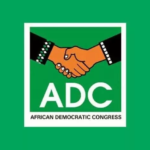One strong reason for the docility of Nigerians is fear. Decades of military rule, arbitrary arrests, police brutality, and repression have conditioned the ordinary citizen to believe that challenging authority is dangerous.. . Continue..Reading. .
The Nigerian state has perfected the art of instilling fear into the people. Instead of seeing government as a servant, many Nigerians see government as a master who must never be questioned.
This fear, passed from one generation to another, has created a society where silence appears safer than speaking out.
When we look at Nigeria today, the first question that confronts us is this: why are Nigerians so quiet in the face of unbearable hardship? Why are millions enduring hunger, unemployment, inflation, fuel hikes, insecurity, and reckless policies without demanding accountability from those responsible?
Why is it that despite the terrible suffering imposed by Bola Ahmed Tinubu and his cronies, the people have not risen with one voice? These are uncomfortable questions, but as a people we must ask them. Only when we diagnose the disease of silence can we prepare the cure of collective action.
One strong reason for the docility of Nigerians is fear. Decades of military rule, arbitrary arrests, police brutality, and repression have conditioned the ordinary citizen to believe that challenging authority is dangerous.
The Nigerian state has perfected the art of instilling fear into the people. Instead of seeing government as a servant, many Nigerians see government as a master who must never be questioned. This fear, passed from one generation to another, has created a society where silence appears safer than speaking out.
Another factor is poverty and economic survival. A man who cannot feed his family, pay his rent, or afford school fees is more likely to channel his energy into daily survival than into political resistance.
The ruling class understands this and deliberately keeps the majority poor and dependent. Hunger has been weaponized as a political tool. Once people are struggling just to eat, they become easy to manipulate with crumbs, handouts, or empty promises during elections.
Religion has also played a strong role in keeping Nigerians docile. Instead of encouraging people to confront injustice, many religious leaders preach patience and endurance.
They tell their followers that suffering is part of God’s plan, that reward will come in heaven, and that challenging authority is the same as challenging God. This false theology has weakened the spirit of resistance and turned many Nigerians into passive sufferers rather than active challengers of injustice.
Another reason is the deep division among Nigerians. Ethnicity, religion, and regionalism have been used to fragment the people. The political elite deliberately sows division so that Nigerians do not unite against their common oppressors.
Instead of seeing that Tinubu and his cronies are destroying the entire country, people retreat into ethnic and religious camps, defending leaders simply because they come from the same region or share the same faith. This division is the oxygen that sustains corruption and misrule.
Corruption itself has created a culture of cynicism. Many Nigerians believe that all politicians are the same and that nothing will ever change. This hopelessness kills the desire to fight. When people have seen promises broken repeatedly, they stop believing in the possibility of transformation.
They accept suffering as normal and dismiss those who talk about revolution as dreamers. This cynicism is exactly what the ruling class wants — a people too tired to resist and too doubtful to organize.
Yet docility cannot last forever. Nigerians are patient, but patience has its breaking point. History shows that no people can be oppressed endlessly without eventually finding their voice. The present economic crisis, the collapse of living standards, and the arrogance of the political class are slowly awakening Nigerians.
The suffering is now universal. It is no longer just the poor that are crying; even the middle class and the so called elites are feeling the heat. This shared pain is laying the foundation for unity.
It is important to acknowledge the role of truth-tellers in this awakening. Omoyele Sowore has been a consistent voice, refusing to sugarcoat the bitter truth. He has reminded Nigerians that we cannot continue recycling failed politicians and expect new results.
He has shown courage in confronting Tinubu and his fellow political criminals. By speaking plainly, Sowore has given Nigerians the courage to also begin questioning authority and demanding change. His voice is proof that not everyone has been bought, silenced, or broken.
The truth is that a people’s revolution is inevitable. It may not happen overnight, but the signs are clear. The level of suffering is unsustainable. Families cannot afford food. Workers cannot survive on their salaries. Students are losing hope in education.
The healthcare system is collapsing. Security is failing. The system is crumbling under its own weight. When these pressures reach boiling point, Nigerians will discover the strength that has been buried under years of fear, poverty, and manipulation.
The future will demand unity. Nigerians will have to see beyond tribe, religion, and region. They will have to realize that their true enemies are not each other but the corrupt elite that has held the country hostage.
The recycled politicians, Tinubu being the current ringleader, cannot save Nigeria because they are the architects of its decay. Only a united people’s movement, built on truth, courage, and solidarity, can rescue the nation.
For now, the challenge before us is to keep educating, keep organizing, and keep speaking the truth. We must remind Nigerians that silence is dangerous, that docility is costly, and that suffering is not destiny. Every empire of oppression eventually collapses, and when Nigerians decide to stand together, no power can withstand them.
The coming revolution will not be a gift from the ruling class. It will be the product of collective courage, inspired by truth-tellers like Omoyele Sowore and carried forward by the ordinary people who finally say, “enough is enough.”If You’re Reading From Phoenix Click On Read Original at the top To Read Full Article





